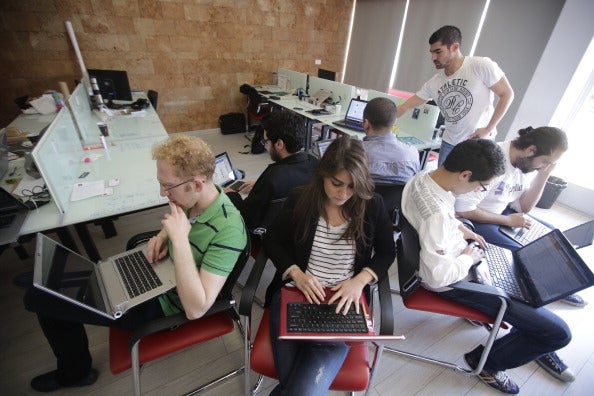Russell Group ‘less likely’ to produce entrepreneurs compared with post-1992 universities
West Midlands graduates 'most open to the possibility of entrepreneurship' than any other area in the UK

Traditional and elite universities in the Russell Group are less likely to produce budding entrepreneurs when compared with post-1992 institutions, according to a recent study.
Business insurance broker PolicyBee surveyed just over 1,000 graduates who left university over the last three years to find 38 per cent of post-1992 - or ex-polytechnics - graduates said their university discussed freelancing or being self employed - but only 11 per cent said the same of Russell Group institutions.
61 per cent of post-1992 graduates said they had undertaken some freelance or self employed work during their studies - compared to 53 per cent of Russell Group graduates - and 46 per cent of ex-polytechnics graduates are ‘definitely’ or ‘probably’ considering a career as a freelancer or in self employment versus 39 per cent within the Russell Group.
Graduates from the West Midlands were found to be the most open to the possibility of entrepreneurship than any other area in the UK with 59 per cent taking such opportunities upon themselves during their degree, indicating this group is more likely to consider business as a future career option.
Kerri-Ann Hockley, who commissioned the study, described how current economic difficulties have seen more and more people turn to self-employment with graduates, in particular, showing an appetite for self-employment. However, she said: “Universities could do more to encourage and support potential freelancers.
“In the past, self-employment or freelancing were only considered options by more experienced professionals. The latest generation don’t see this as a barrier. They no longer need to follow conventional routes into employment if it doesn’t suit them. However, they could still benefit from more support, and universities have an important role to play in supplying this.”
On the whole, the research showed 62 per cent of graduates said freelancing or self-employment was not discussed at all - even though it was an option for their chosen career - and a further 19 per cent said it was discussed but not enough information was given.
This, said PolicyBee, is despite a backdrop of over half (56 per cent) of those surveyed saying they had undertaken some freelancing during their studies and that 44 per cent were then considering freelancing or self-employment as a career option.
Reflecting on the costs involved in setting up a business, Hockley highlighted how they are not as high as some graduates might expect. She added: “But this is certainly not the easy option and it won’t suit everyone.
“However, the rewards of financial independence and flexibility are there for those who have the determination, work ethic and a solid idea.”
Join our commenting forum
Join thought-provoking conversations, follow other Independent readers and see their replies
Comments
Bookmark popover
Removed from bookmarks